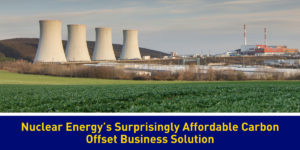When dealing with a service provider whose service is less than adequate, the most logical next step is to find another to take its place. But what about when that service provider is your utility company? Price gouging, service outages and rate increases can all contribute to poor utility service. And utility customers often think they have no other option. But that is not always the case.
Oftentimes, there are other options for providers even if it doesn’t seem like they would be available to you. Sometimes it takes the help of a consultant or agency to find out how. So, if you find yourself needing help to find a new utility provider, here are some tips to help you get started.
Give your utility provider an honest assessment
Are your recent woes a result of an isolated incident or have issues been causing you concern for a long time? Is the source of your problem the utility provider? Or are there other external sources that could be causing the issue? These are questions you need to ask before you begin taking actions to switch providers. The challenges you encounter could be a simple misunderstanding of what is happening with your service or of what options are available to you by your provider.
Do your research
With so many advances in technology, such as smart meters and smart grids, it’s important you know what your options are. Knowing what technologies are available in the market could help you save costs and optimize your energy efficiency. Ask around and see what other service providers offer and if your provider is on par. Also, do some online research to find out what recent investments your service provider has made to improve their service. Getting a better understanding the industry standard will help you to decide if it makes sense to make the switch.
Contact an expert
To see if a new utility provider can service your location, contact an energy consultant like Brilliant Source Energy. We will send a Project Engineer and a local utility to your site to assess feasibility and determine potential cost and energy savings. Once the client approves the project, a complete turnkey solution can be designed and engineered. Typically, most solutions can be funded from derived savings making them immediately cash flow positive.
Brilliant Source Energy has established relationships, giving our clients and advantage with line extension discounts. For more information on what you can do to assess your utility provider, contact our team at info@heynowwebsites.com.





